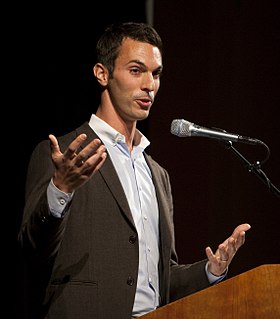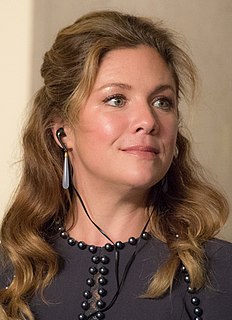A Quote by Stewart D. Friedman
Women make up half our workforce and this has an impact at home on spouses and children. This means the workplace must change because women - who have historically been the primary caregivers at home - are now fully in the workforce and here to stay.
Related Quotes
With women composing nearly half the American workforce and increasingly serving as the primary breadwinner for families, we can't afford to treat pregnant women differently than their counterparts, especially when slight job modifications could help them stay in the workforce at no risk to their health.
The most unacknowledged spending expectation among women is the amount of time spent by single mothers caring for children, not only physically, but psychologically. It is my feeling that only a small percentage of a mother's time is normally compensated for by child support, given what a woman could make adding these hours to workforce hours. It is why women who have never been married and never had children earn so much more in the workplace than women who have had children.
If we want to make the most of half of our workforce, if we want to eliminate the gender pay gap and we want that same half of the workforce to succeed in jobs that boost our economy, we must make sure that teenage girls don't feel, and are certainly not told, that certain subjects are the preserve of men.
I see certain parallels between the debate over feminism where some women argue that women should not be forced to stay at home and take care of children [and debate about hijab]. And there are other women who are saying you are criticizing my decision as a free liberated women to stay home and take care of my children.
Usually women are the lynchpins of the family. They carry the brunt of the work at home and of being mothers and of taking care of the children. Not always. I have a wonderful husband, who is a great father and has helped tremendously at home. And I think that men are getting in touch and I think that the role that they have is so important, to be a good father and have a good career and be a good husband. But I think that as more and more women go into the workforce, you have to have more help at home and it becomes more of a sharing of responsibilities.
I think the main goal of the feminist movement was the status degradation of the full-time homemaker. They really wanted to get all women out of the homes and into the workforce. And again and again, they taught that the only fulfilling lifestyle was to be in the workforce reporting to a boss instead of being in the home reporting to a husband.
We need to stop buying into the myth about gender equality. It isn't a reality yet. Today, women make up half of the U.S. workforce, but the average working woman earns only 77 percent of what the average working man makes. But unless women and men both say this is unacceptable, things will not change.
When I got married and had a child and went to work, my day was all day, all night. You lose your sense of balance. That was in the late '60s, '70s, women went to work, they went crazy. They thought the workplace was much more exciting than the home. They thought the family could wait. And you know what? The family can't wait. And women have now found that out. It all has to do with women, or the homemaker leaving the home and realizing that where they've gone is not as fabulous, or as rewarding, or as self-fulfilling as the balance between the workplace and the home place.
































